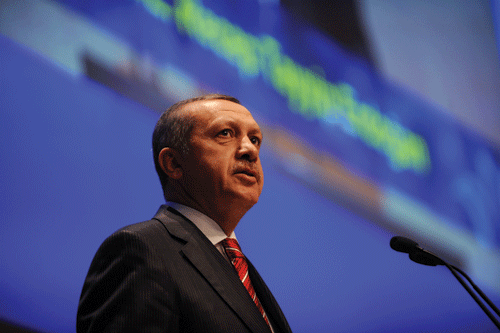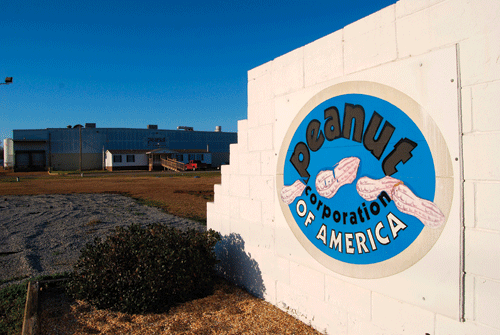It threatens to be the longest running thriller since “The Mousetrap” opened at Saint Martin’s Theater in London more than half a century ago. Negotiations between the International Monetary Fund and Turkey over a standby loan have been on and off ever since the previous $10 billion agreement expired in May of 2008.
Bankers, analysts and journalists have been speculating for most of that time that a new deal would be struck within days, weeks or months, and the reports of the amounts being discussed have varied from $6 billion as the “minimum needed to rescue the Turkish economy,” to sums as high as $50 billion.
“Excuse our cynicism,” said Timothy Ash, head of emerging markets strategy at the Royal Bank of Scotland in London, “but we have had similar promises appearing in the media of an IMF deal being cut at the IMF autumn 2008, spring and autumn 2009 meetings, the Group of 20 summit in April 2009, then successive Barack Obama-Recep Tayyip Erdogan summits.”
Prime Minister Erdogan has been orchestrating a guessing game that rivals any Agatha Christie plot. His teasing snippets from time to time have left the press indulging in its well-practiced sport of inventing what it doesn’t know. What is certain is that, with deft sleight of hand, Erdogan is heading for a double victory in what seemed until recently a titanic domestic clash between politics and economics.
The prime minister and his closest cohorts have been talking up the Turkish economy for months, saying it survived the global financial crisis unscathed and dropping broad hints that the country didn’t really need an IMF loan anyway. His optimism seemed to fly in the face of a raft of depressing numbers — a recession that saw gross domestic product fall by nearly 6 percent in 2009, a ballooning budget deficit, an unemployment fall of 16 percent at one point, and slashed industrial output.
Certainly these numbers didn’t impress the IMF, which wanted the ruling Justice and Development Party (AKP) to cut public spending and raise taxes. For Erdogan, this was akin to inviting him to commit political hara-kiri. Raising taxes before the municipal elections of March 2009 would probably have sent his party’s popularity into a tailspin. In fact, Erdogan spent heavily to court voters in the month leading up to the poll. He also announced a $2 billion increase in retirement pension spending last month. Understandably, there was less fanfare about a vast range of tax increases revealed on December 31, 2009.
Putting up tax rates voluntarily rather than as a condition of any IMF loan probably doesn’t make too much difference to the people who have to pay them. Yet at least Erdogan can argue that he is negotiating with the IMF from a position of strength not weakness.
Petrol prices went up on January 1 to $2.64 for a liter of unleaded; cigarettes were hit, with a domestic packet now costing $2.86 instead of $2.35; most alcohol is more expensive; car taxes rose; tolls across the Bosphorus bridges went up; electricity bills will increase by 1.3 percent. Natural gas was spared — for the moment. Its cost is expected to rise by 5 percent this month in what may be the first of two increases for this year.
In effect, Erdogan has fully funded the pension increases with new taxes and even made an annual “profit” of $1.35 billion on the deal.
Even some of the prime minister’s opponents, as well as impartial sources, are beginning to share his resolute belief in the innate strength of the Turkish economy. A 30-year, $2 billion bond — the longest maturity ever issued in Turkey — was more than three-and-a-half times oversubscribed. The issue followed an upgrade in the country’s sovereign ratings to BB+ (one step below investment grade) from global rating agency Fitch Ratings.
The forecast for the economy is also on the up. A report by Turkish brokerage house Is Investment put likely growth for 2010 at 4.3 percent, increasing the figure to five percent if the elusive IMF deal comes off. In any case, IMF money is not viewed as a bailout but a measure to help Ankara roll over its foreign debt and ease the flow of loans to industry. Erdogan’s few quoted comments in January ranged from finalizing an agreement within “days or weeks,” to suggesting that a deal may not happen at all. IMF spokeswoman Caroline Atkinson provided more intrigue by saying, “We have not had a mission fielded nor requested.”
And so the plot thickens. As no one in the know is giving the IMF game away, la politesse and protocol dictates that Executive will not reveal the identity of the villain in the mousetrap either. It is enough to say that things are not always as they seem.
Peter Grimsditch is Executive’s Istanbul correspondent








